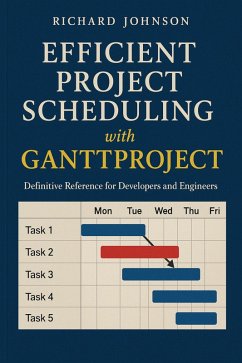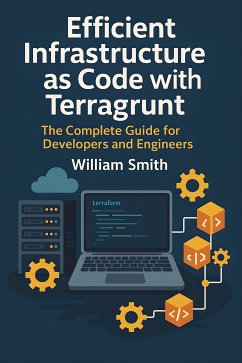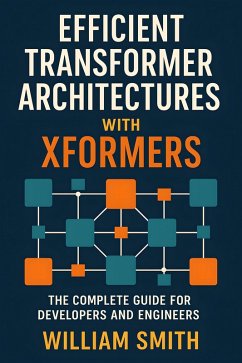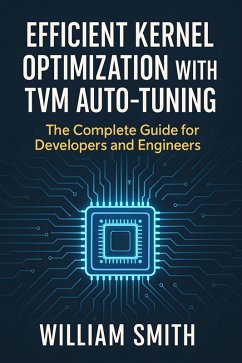
Efficient Numerical Computing with Intel MKL (eBook, ePUB)
Definitive Reference for Developers and Engineers

PAYBACK Punkte
0 °P sammeln!
"Efficient Numerical Computing with Intel MKL" Efficient Numerical Computing with Intel MKL is an essential resource for scientists, engineers, and data professionals seeking to harness the full potential of modern computational hardware through the Intel Math Kernel Library (MKL). The book begins with a detailed exploration of contemporary CPU architectures and the numerically intensive workloads they support, delving into fundamental paradigms of numerical computing and demonstrating how MKL's design was forged to maximize hardware utilization. Readers are introduced to key concepts in dense...
"Efficient Numerical Computing with Intel MKL" Efficient Numerical Computing with Intel MKL is an essential resource for scientists, engineers, and data professionals seeking to harness the full potential of modern computational hardware through the Intel Math Kernel Library (MKL). The book begins with a detailed exploration of contemporary CPU architectures and the numerically intensive workloads they support, delving into fundamental paradigms of numerical computing and demonstrating how MKL's design was forged to maximize hardware utilization. Readers are introduced to key concepts in dense and sparse computations, library design philosophies, and the intricate interplay of software optimization and hardware efficiency. Structured as a comprehensive guide, the book walks users from initial MKL installation and system integration across varied platforms, through high-performance applications in BLAS, LAPACK, FFTs, statistical routines, and vector mathematics. Each major domain is covered with practical insights into threading, memory layout, precision management, and performance benchmarking, enriched with case studies and real-world applications in scientific computing, engineering, machine learning, and large-scale analytics. The text further clarifies advanced linear algebra methods, Fourier and spectral transforms, random number and statistical analyses, and the deployment of multi-threaded and distributed numerical workloads. Beyond technical execution, the book embraces MKL's growing ecosystem-offering practical strategies for interoperability with C, C++, Fortran, Python, Julia, and R, integration with cloud and container environments, and the path forward with emerging hardware and software trends. Concluding with a look at the future of high-performance numerics, including open-source initiatives, new accelerator hardware, and the community's role in pushing research frontiers, Efficient Numerical Computing with Intel MKL stands as a definitive reference and a practical roadmap for modern, reliable, and scalable numerical computation.
Dieser Download kann aus rechtlichen Gründen nur mit Rechnungsadresse in A, B, BG, CY, CZ, D, DK, EW, E, FIN, F, GR, H, IRL, I, LT, L, LR, M, NL, PL, P, R, S, SLO, SK ausgeliefert werden.













